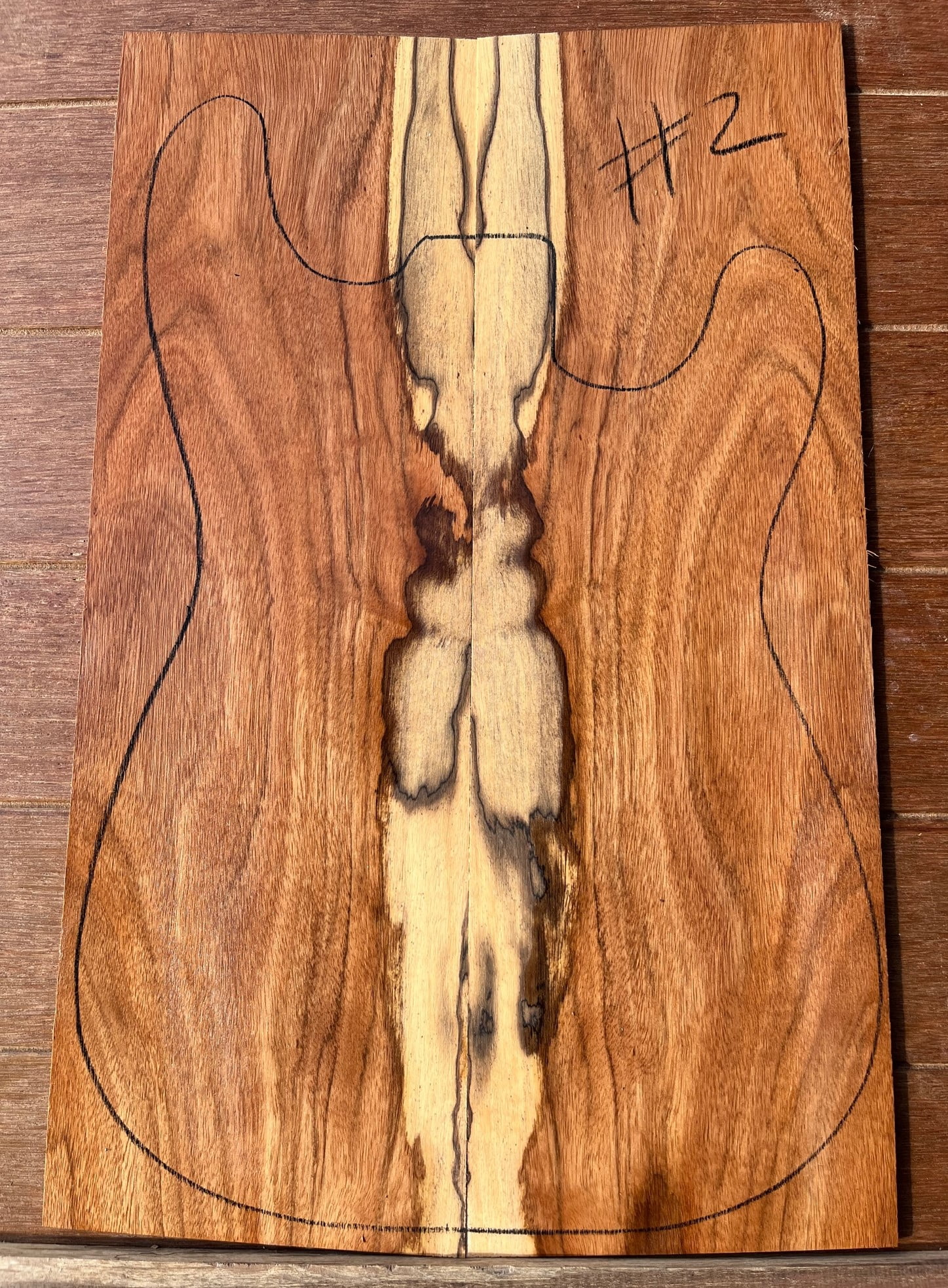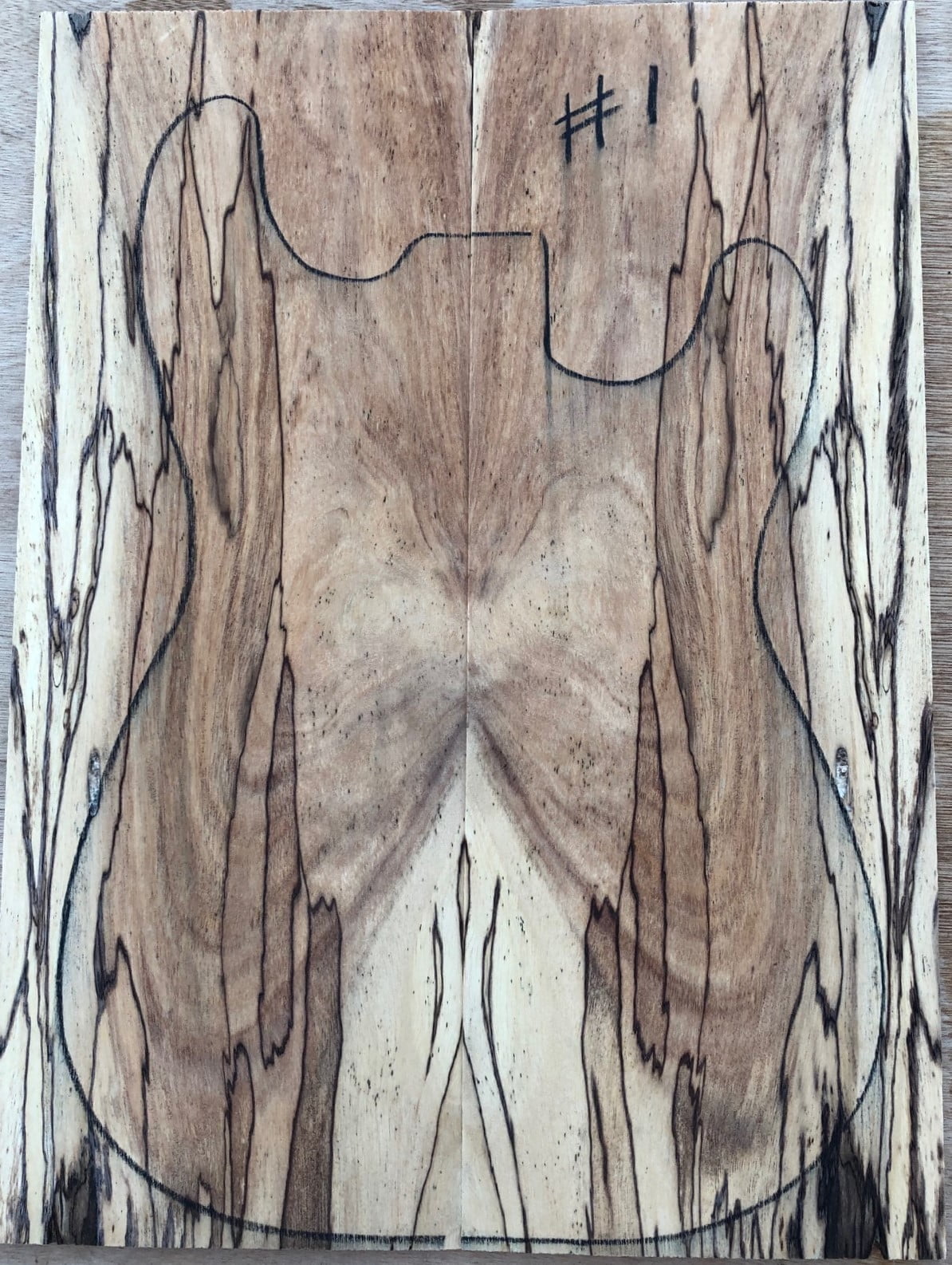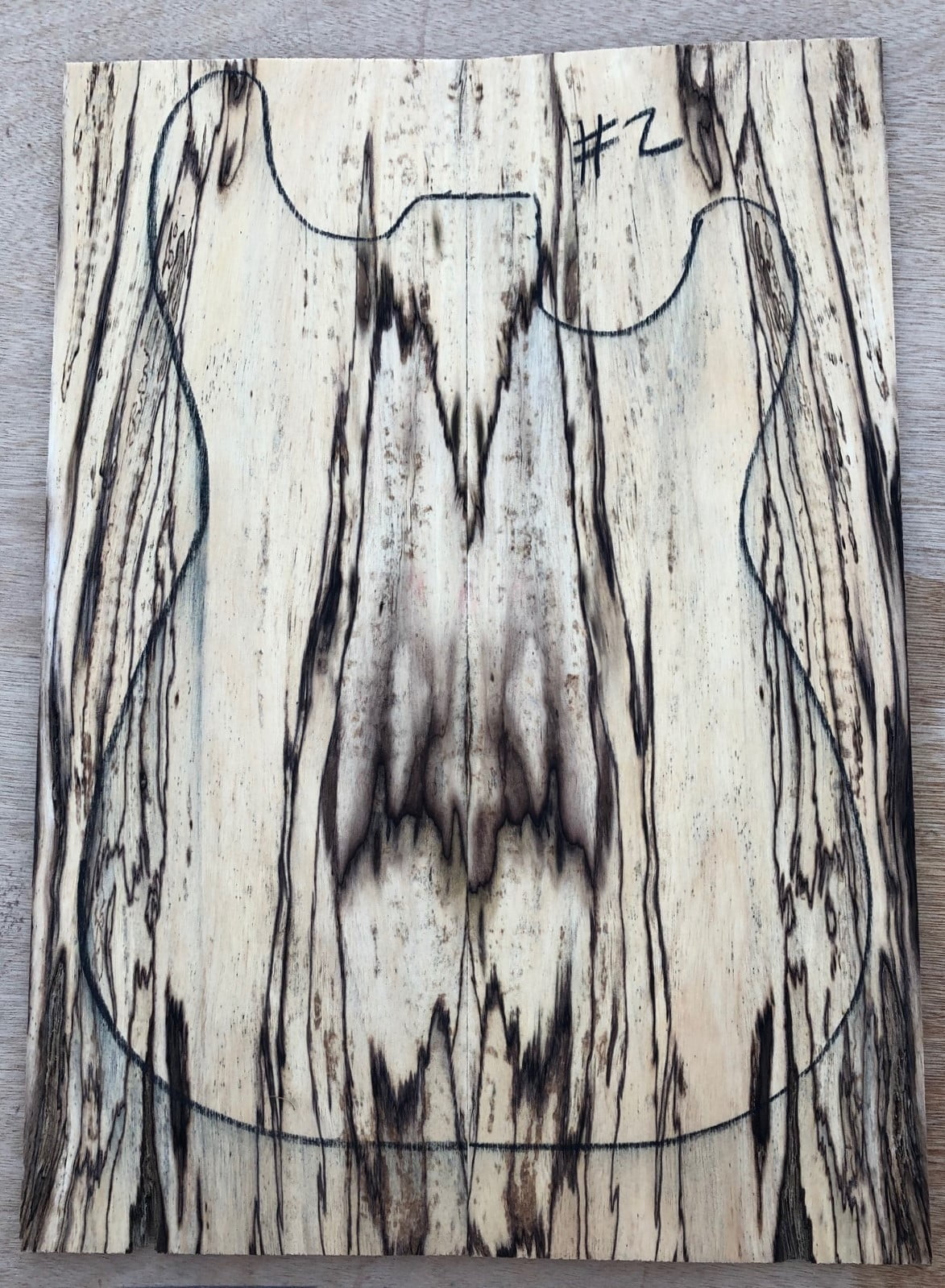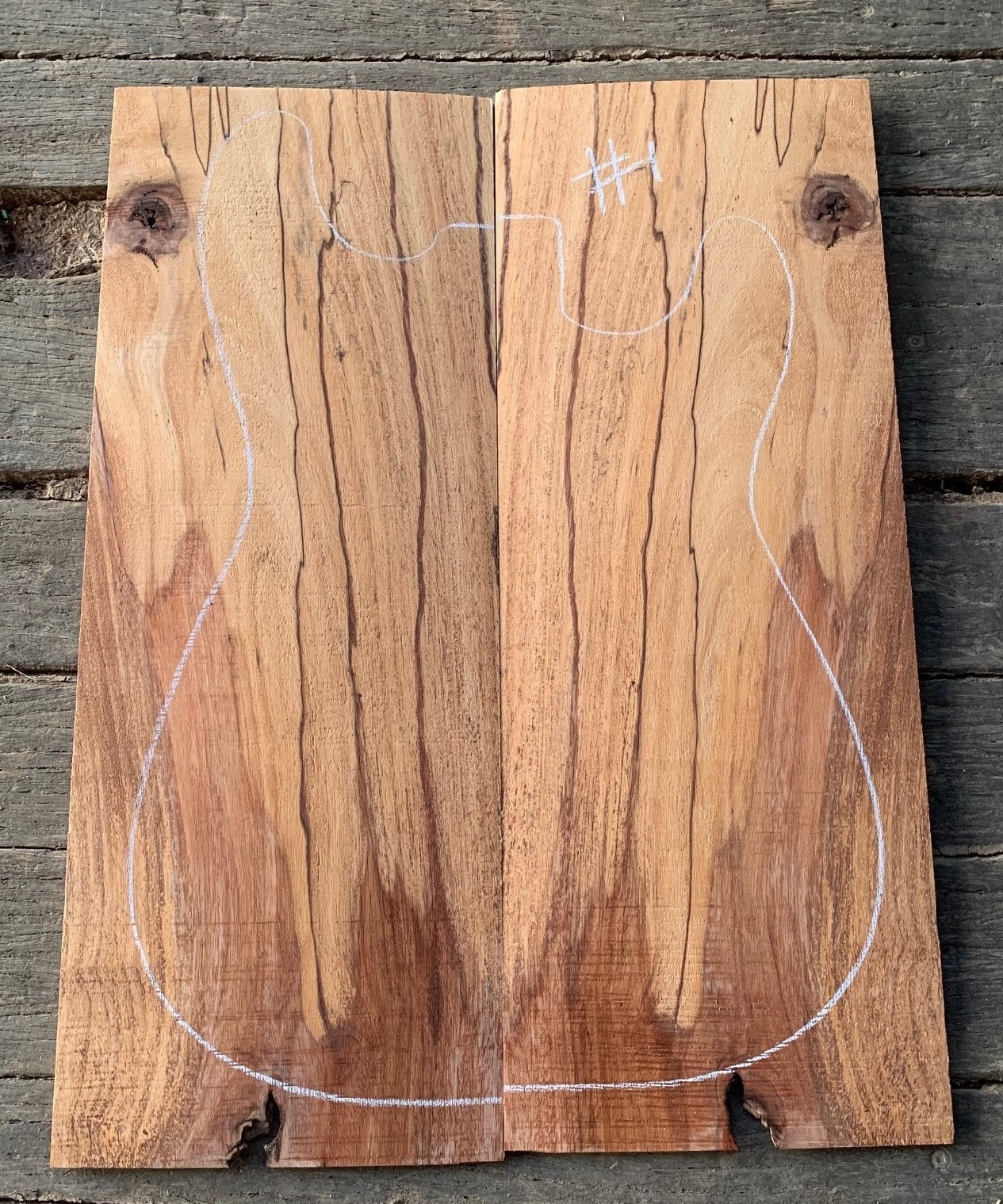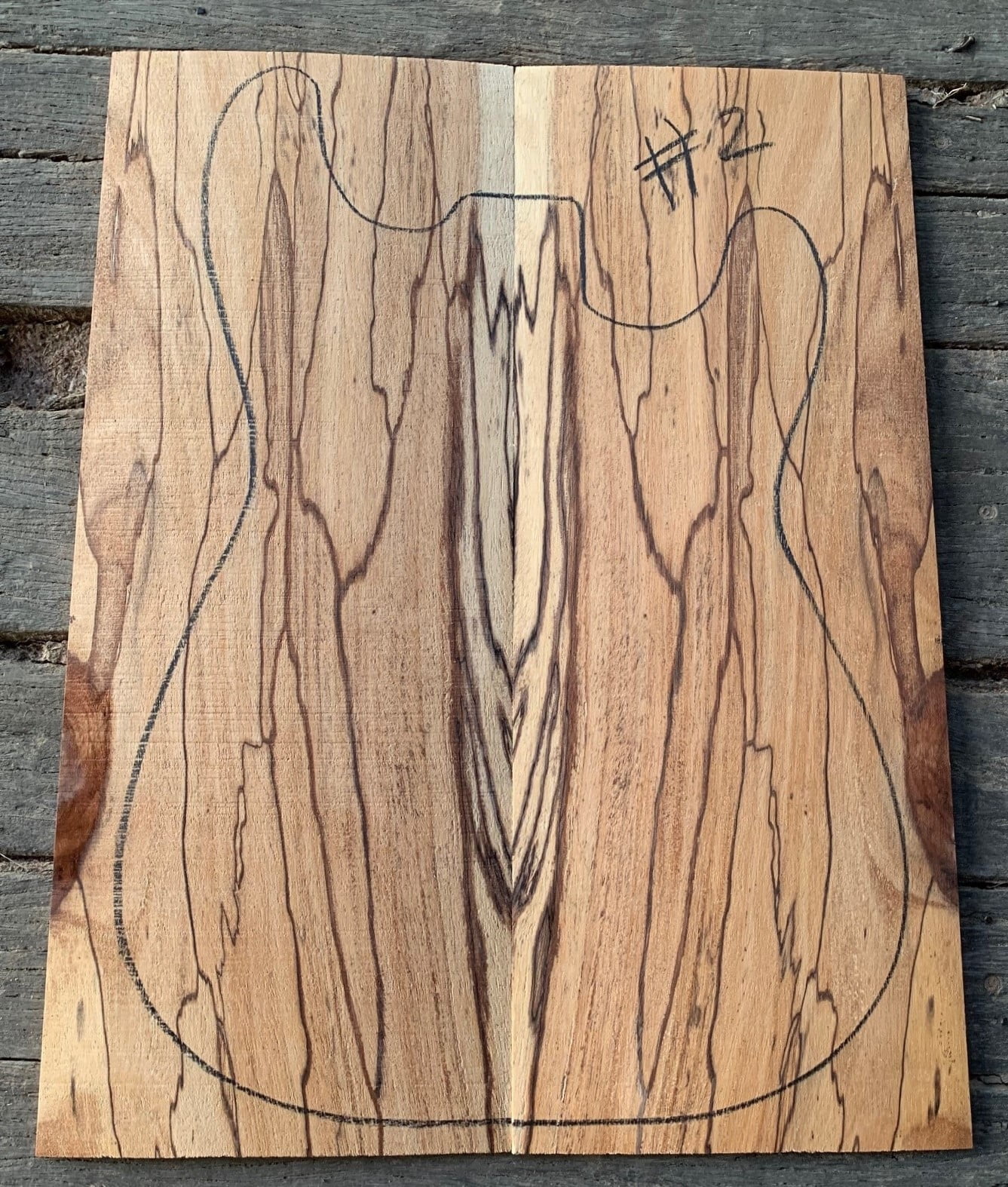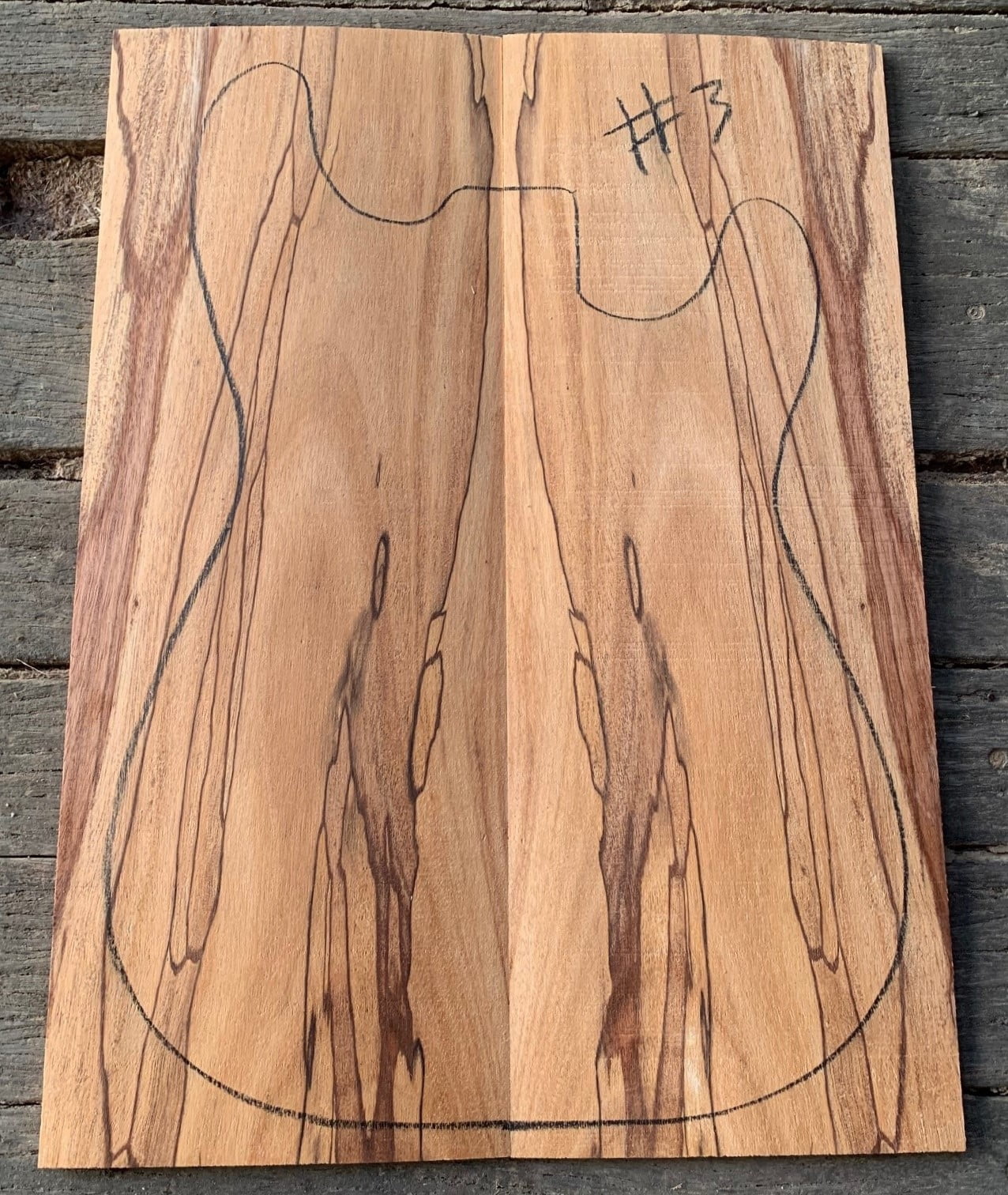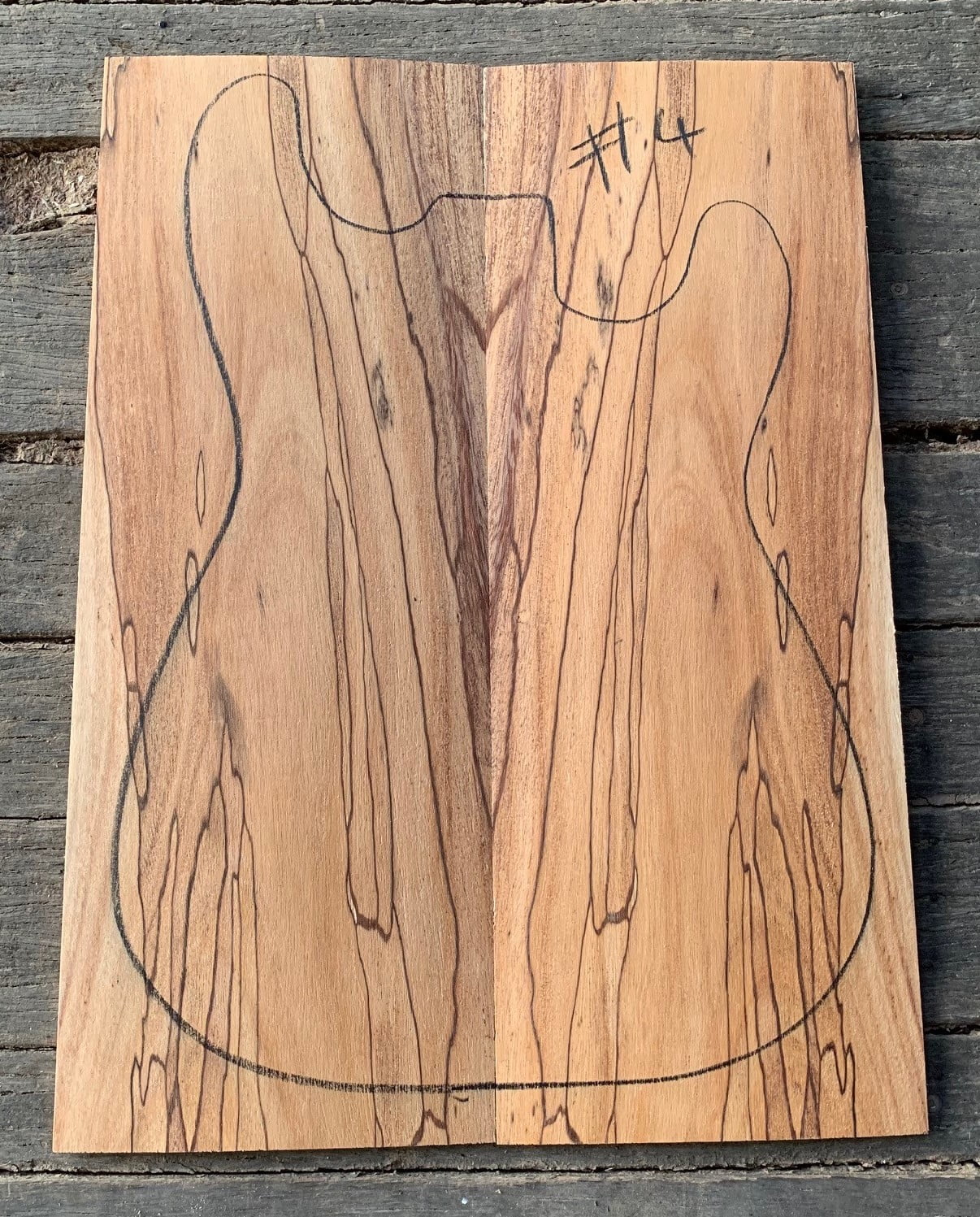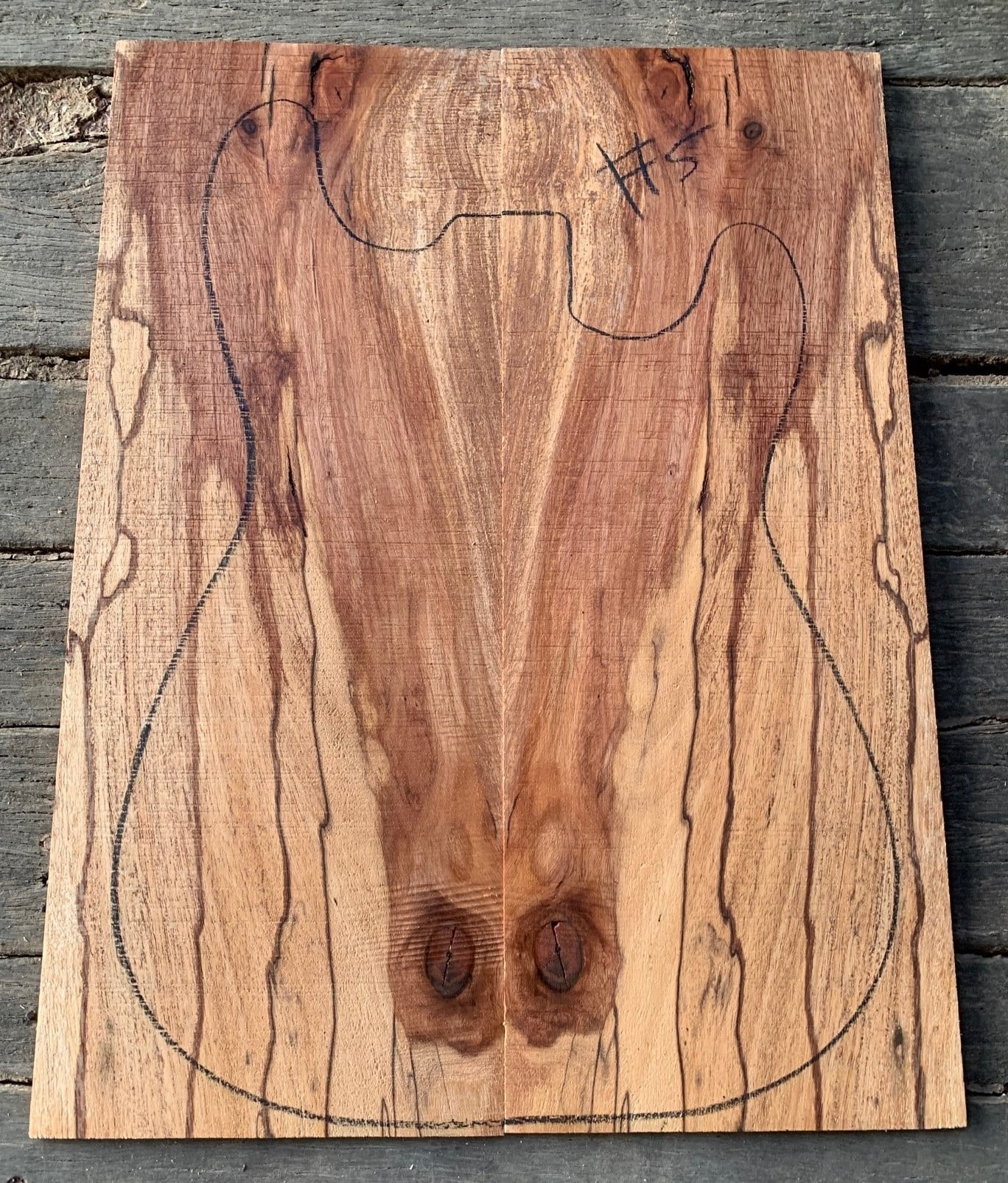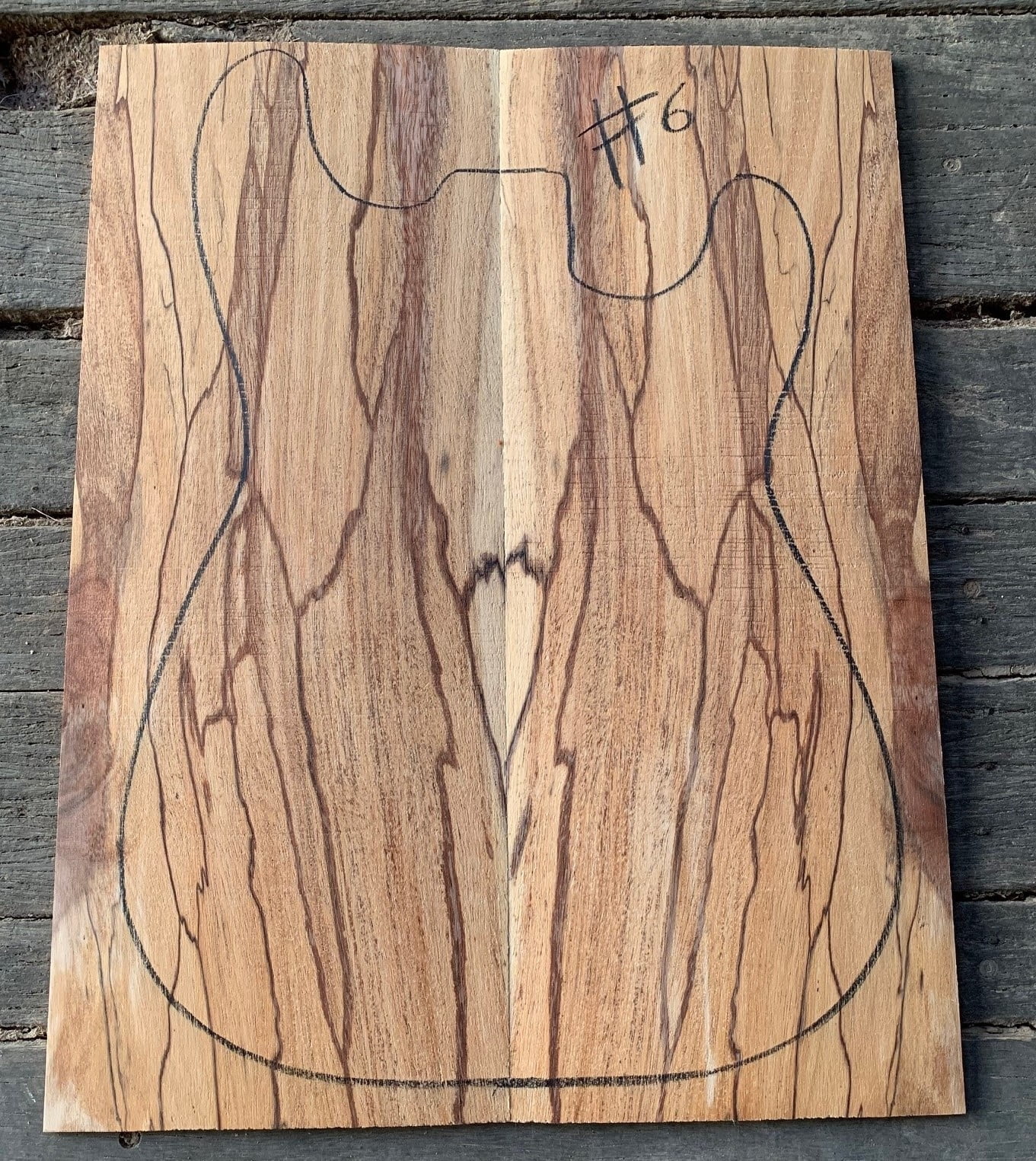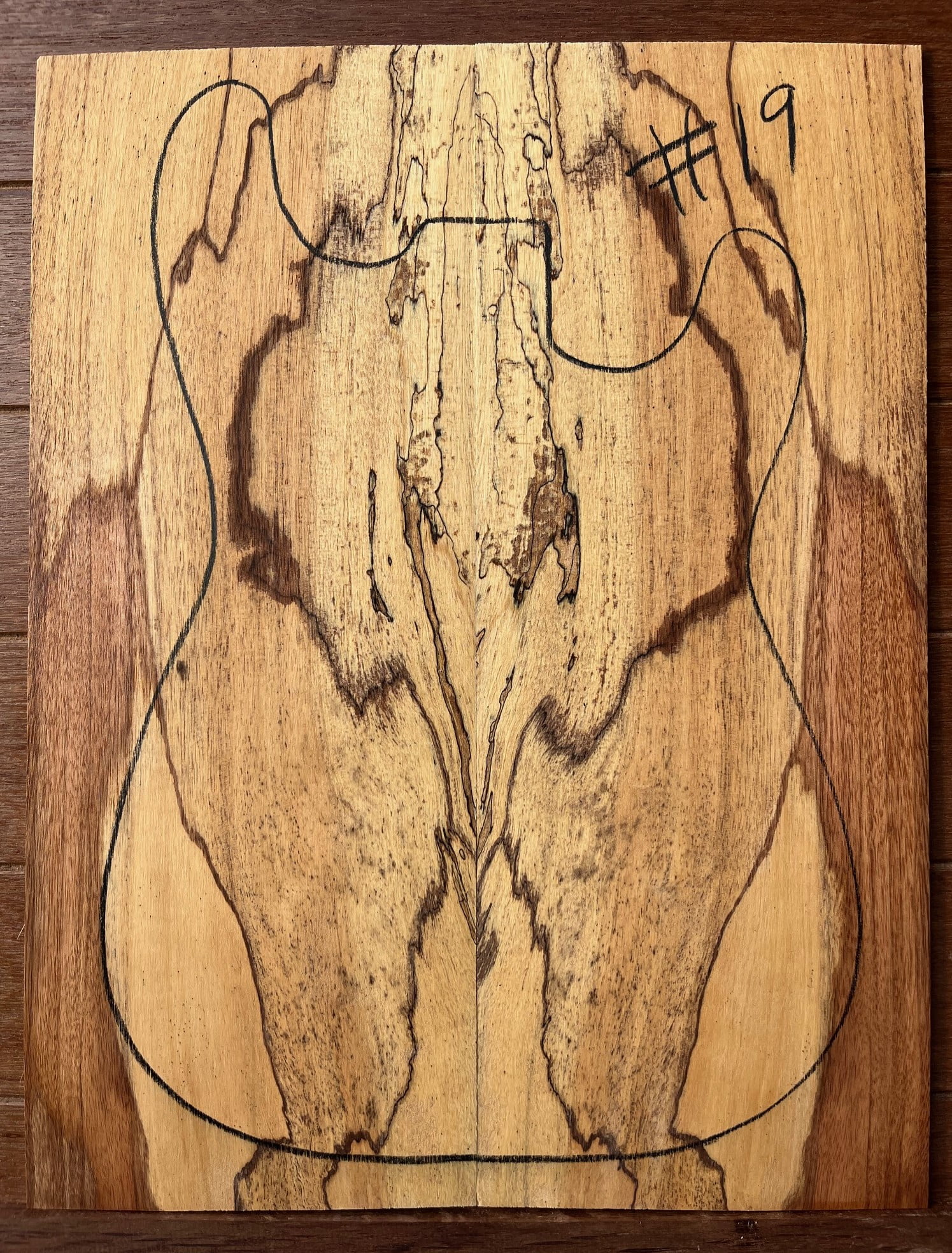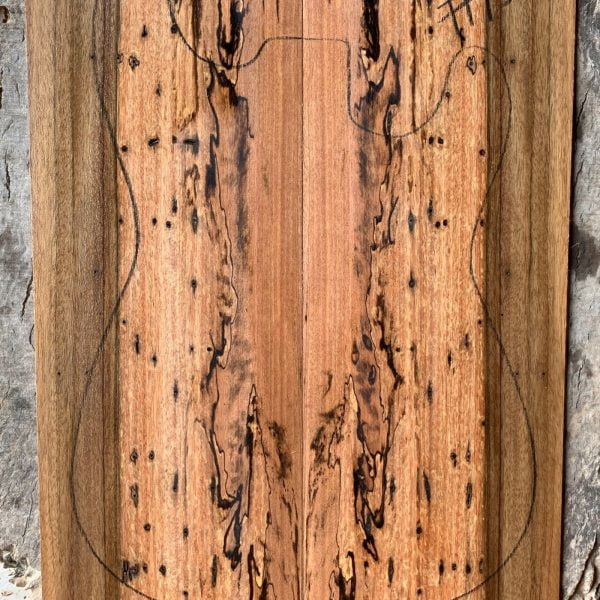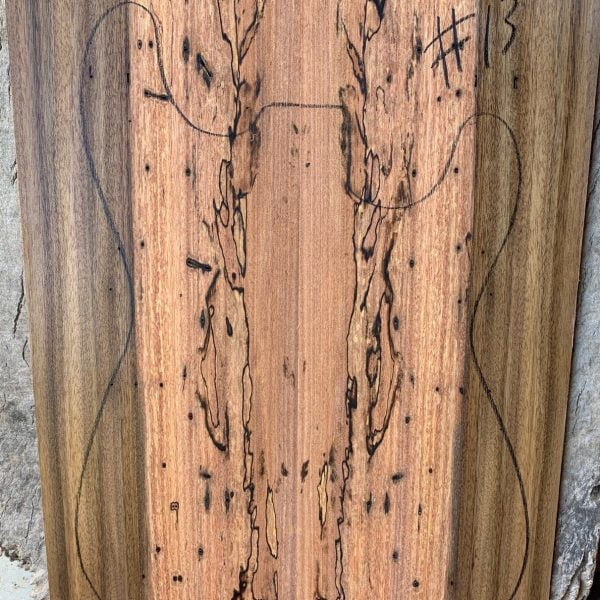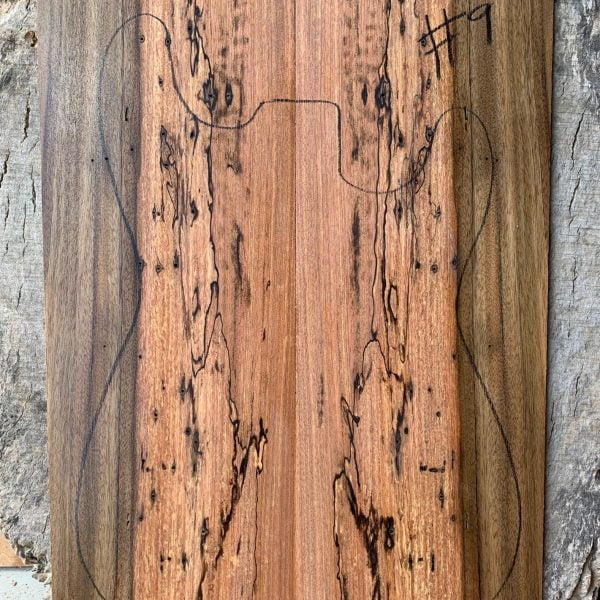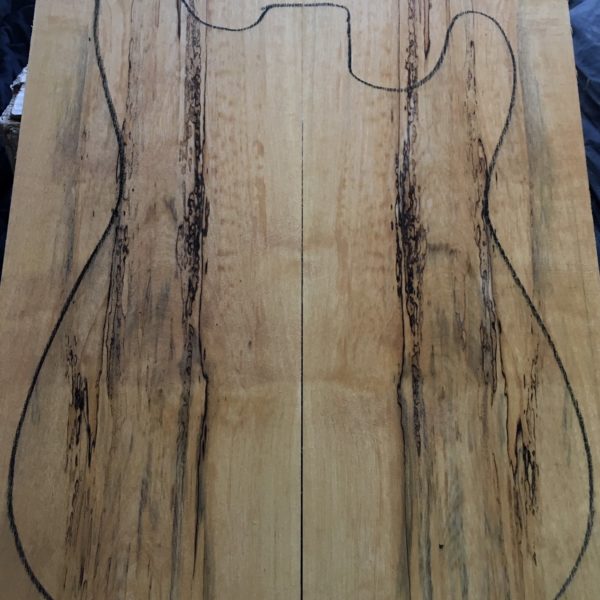Description
Spalted Tamarind Cap
Book matched pair – Delicate spalt markings with beautiful movement in the patterning
Dry and ready to use.
Spalting is a unique pattern and coloration that forms in wood due to the growth of fungi. It typically occurs when logs or timbers are left in damp or humid conditions where fungi can grow. There are several stages to the spalting process:
- Colonization: Fungi colonize the wood, usually through spores present in the air or in the wood itself. These fungi may be from various species, each contributing to the unique patterns and colors seen in spalted wood.
- Competition: As different fungal species compete for resources within the wood, they may produce enzymes and chemicals that affect the wood’s structure and color. This competition can lead to the formation of distinct zones of color and pattern.
- Chemical Changes: The fungi produce enzymes that break down certain components of the wood, such as lignin and cellulose. This breakdown can alter the color and texture of the wood, creating the characteristic dark lines and patterns associated with spalting.
- Stabilization: Spalting can continue until the wood becomes too dry or the fungi exhaust their food source. At this point, the wood stabilizes, and further fungal growth ceases.
The exact appearance of spalting can vary depending on factors such as the species of fungi present, the type of wood, and environmental conditions. Spalting is often prized by woodworkers and artists for its unique aesthetic qualities and is sometimes intentionally encouraged by controlling the conditions in which wood is stored or processed.
David from Australian Guitar Timbers mills all his own logs which then sit in strip and air dry for at least two years before being cut into blocks. The timber is then placed in a Solar or Electric Kiln and dried further to between 8 and 10% moisture content. Nearly all of the logs David has are sourced locally here in Queensland except for the Tasmanian Timbers. Rather than trees being sent to be chipped they are saved and collected to be repurposed. Australian Guitar Timbers sustainably collect wood and love that they can convert the timber into a much-loved instrument part.

